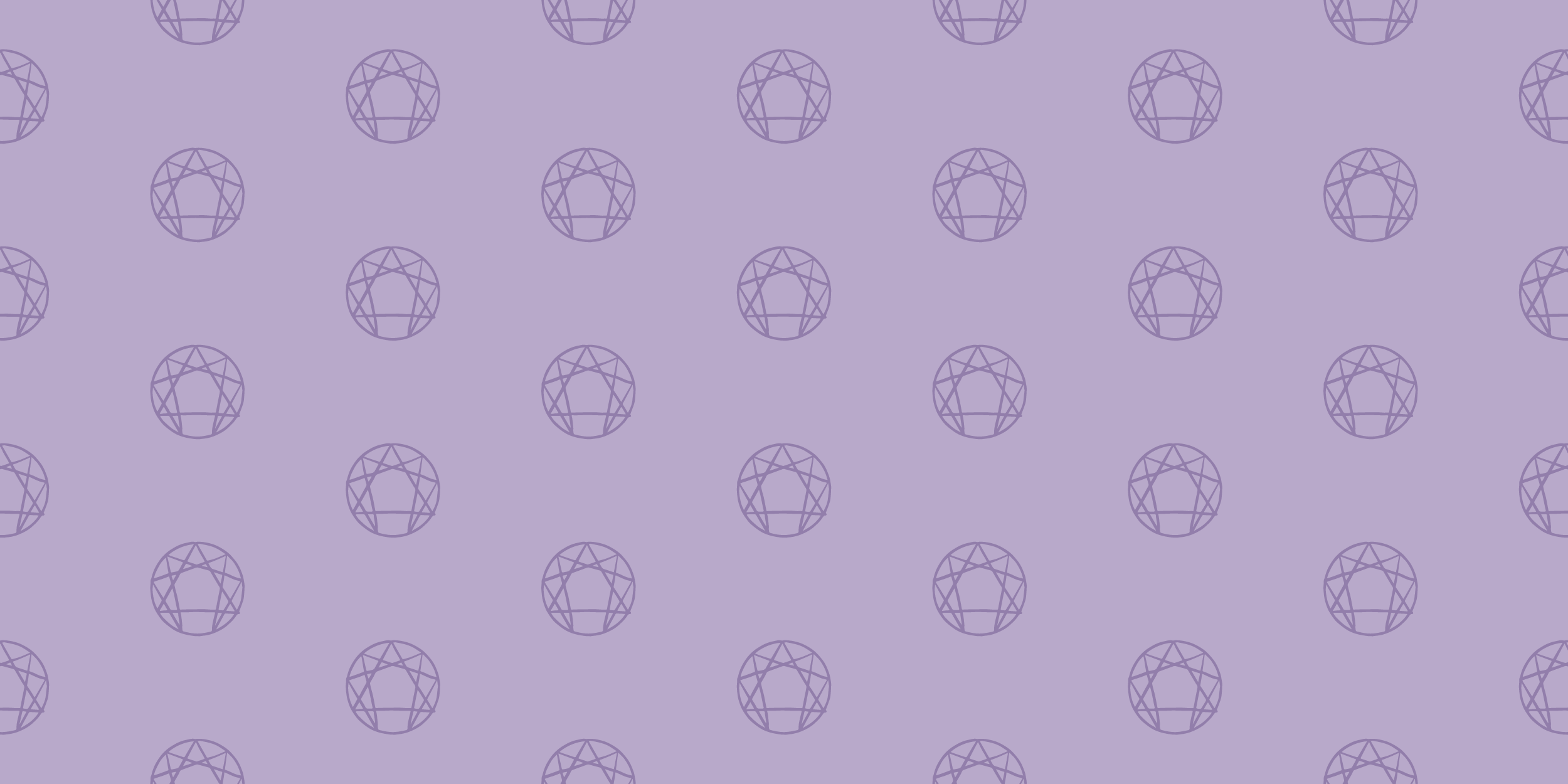
What is the enneagram?
The Enneagram is a psychological- spiritual personality typing tool which serves as a map for transformation and growth.
Unlike other personality typing systems, the wisdom of the Enneagram does not put you in a box with a label and leave you there. Instead, it shows you the particular box you've been trapped in (aka. your personality) so that you can get out and discover the freedom of your True Self. The Enneagram is dynamic, and points to each type's unique skills and virtues as well as each type's shadow side and habits that continuously get them into trouble. It is a fast-track to self awareness, self compassion, and transformation. I have found no other tool that can so elegantly help people see their patterns and get "un-stuck." Not only is it a tool for greater mental, spiritual, and emotional health, it also leads to greater compassion for others and shines a light on the root of difficulties in our relationships.
The Enneagram has nine personality types, which are actually habits and coping mechanisms built up over time in an attempt to feel safe, secure, loved, respected, in control, and happy. Each of these “programs for happiness” work for us for a time...until they don’t. They end up getting us into trouble, again, and again... and again. We get frustrated with ourselves, feeling defective, angry, ashamed, and afraid. (e.g. What is wrong with me that I just can’t seem to change?? I intend to stop reacting to people and situations in this way, but I just can’t stop myself!! I guess I’ll just have to suffer like this the rest of my life. Poor me, no one understands me!)
Here’s where the Enneagram steps in with the radical introduction to CHOICE. As the late and brilliant Enneagram master teacher Don Riso used to say, “It doesn’t have to be this way!” My own genius teacher Anne Muree says (and I paraphrase), “The Enneagram is about LOVE and CHOICE, and they are right around the corner from one another. First we choose to love ourselves. Then we love ourselves enough to make different choices. And through these healthier choices, our love for ourselves and others grows.” But here's the kicker: changing our patterns means we need to first see them clearly, and see their underlying motivations clearly, and that is one way the Enneagram can be very helpful.
The nine types
-

Type One
The Reformer
principled, disciplined, practical, orderly, have rigid standards
-

Type Two
The Helper
nurturing, generous, caring, interpersonal, people-pleasing
-

Type Three
The Achiever
outstanding, achieving, improving, adaptable, image conscious
-

Type Four
The Individualist
introspective, sensitive, emotionally honest, creative, self pitying
-

Type Five
The Investigator
cerebral, curious, focused, insightful, detached
-

Type Six
The Loyalist
dutiful, prepared, hardworking, responsible, anxious
-

Type Seven
The Enthusiast
optimistic, active, spontaneous, fun, scattered
-

Type Eight
The Challenger
assertive, empowered, strong, taking charge, confrontational
-

Type 9
The Peacemaker
laid back, agreeable, sweet, accepting, conflict avoidant

Enneagram FAQ
-
No! It shows you the box you’re trapped in so you can get out of it! The Enneagram shows us our habits, both Light and Shadow, so that we can make more conscious choices about how we respond to our thoughts and emotions. The Enneagram is dynamic and takes into account the uniqueness of each person. Even though we have one number that is our "home base," there is infinite variety depending on our "Wing" (the types right next to our number that influence our personality), and our "Arrows" which are two other numbers that add qualities to our personality (especially when we are feeling secure or stressed). In addition to all this, there are nine Levels of Development that we grow through as we become more healthy and self aware, changing the way our personality presents itself.
-
The Enneagram is very useful even in the beginning stages of learning. You don't have to learn about Wings, Arrows, Levels of Development, or Subtypes for this to change your life.
-
No. We do change a lot, but we are always operating out of our "Home Base" personality. The variations over time are due to other factors (see Q1 above).
-
This is a controversial question to answer. The answer is Maybe, depending on how it is used. Enneagram type is likely inherent to our Being when we were born. But our personality type is also put on as a sort of "armor" to survive our environment, starting around age two. The degree to which we are fixated and attached to our personality varies depending on the health and nurturing in our early holding environment. Some people introduce the Enneagram to children, but this is a delicate process that should be approached with openness and curiosity, instead of telling children what type they are. Teenage years or early 20's is a prime time to learn more about our Enneagram type.
-
Yes! The Enneagram is taught as an effective tool all around the world. Enneagram teachings were developed by teachers in the Middle East, Eastern Europe, Russia, Bolivia, and Chile before making its way to the United States in the 1970's.
-
The Enneagram is an ancient tool that developed first in the Mediterranean region (perhaps!), then made its way to Russia, South America, and finally to California in the 1970's. Up until the 70's it was a mostly oral tradition. Wisdom teachings from Western philosophy, depth psychology, Jewish Kabbalah, early mystic Christianity, and Sufism are building blocks of the Enneagram system as a whole.
-
Skepticism is healthy! You shouldn't believe everything you stumble across. Your skepticism also gives me a big clue as to your Enneagram type ;) Once you understand your type, your skepticism will make sense and you'll be able to choose how to respond to it. Let's set up a typing session and go from there!
